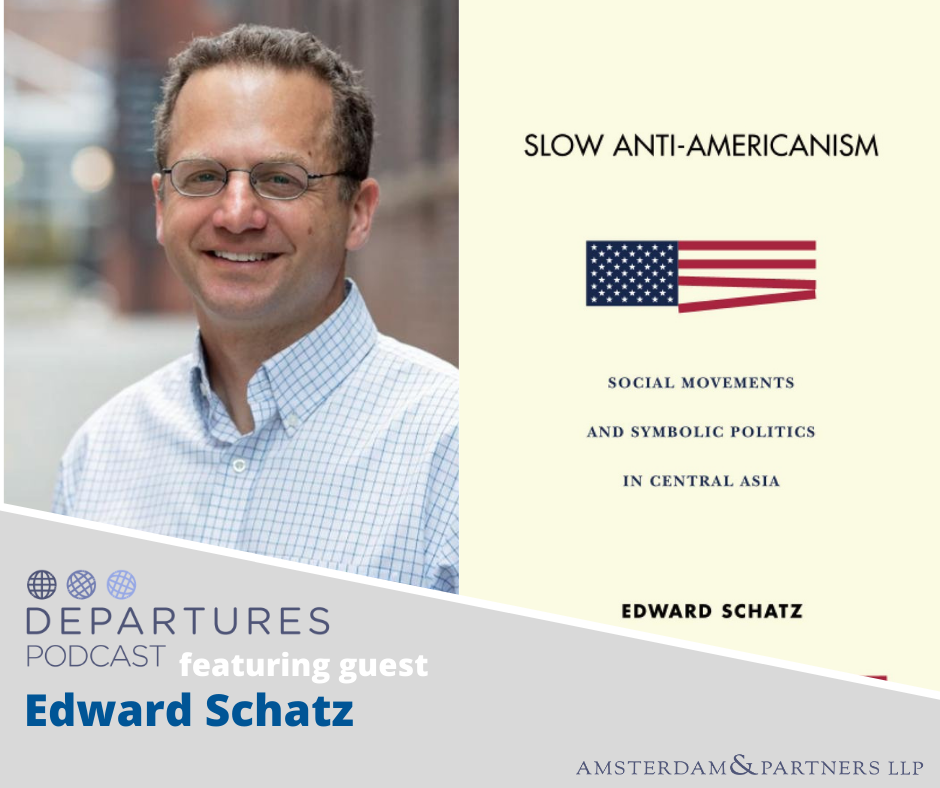Departures Podcast with Edward Schatz

Often overlooked, the nations of Central Asia represent a highly important geostrategic region of the world with abundant mineral and energy wealth – and yet, US diplomatic efforts in these countries are way behind the larger neighbors of Russia and China. Part of this lack of engagement has to do with how America – at least as a symbol – is understood and regarded by various social groups.
Professor Edward Schatz of the University of Toronto joins the Departures podcast this week to discuss his excellent book, “Slow Anti-Americanism: Social Movements and Symbolic Politics in Central Asia” which explores these topics through an innovative lens.
The book features an exploration of how Islamist movements, human rights activists, and labor mobilizers across Central Asia receive and process information about what America is and what its values are, which is often strikingly different that the rhetoric of “high politics” like presidential elections and foreign policies.
“The running metaphor that I use in the book is geological – how sediment flows from one place to another,” Schatz explains, pointing to how perceptions of anti-Americanism spread in Central Asia. “You can see how sediment builds up in certain places and not in others and what the impact might be, but it’s hard to predict in advance.”
Whereas many social groups in Central Asia first were informed about the symbol of America through Soviet propaganda, there have been other sources of information, such as slower-moving, partially occluded, and socially embedded processes that ground how “America” becomes politicized.











